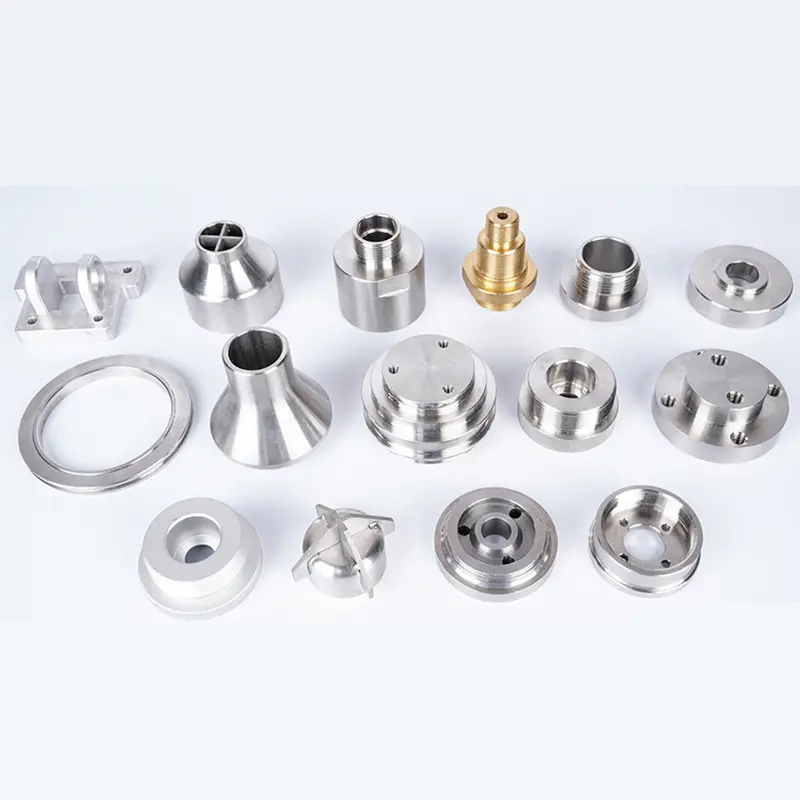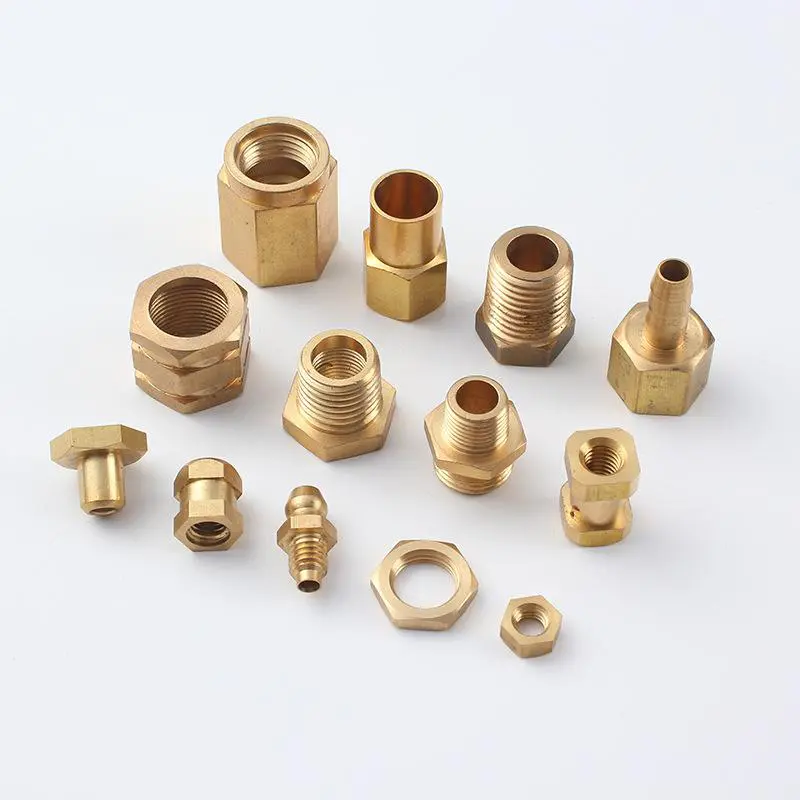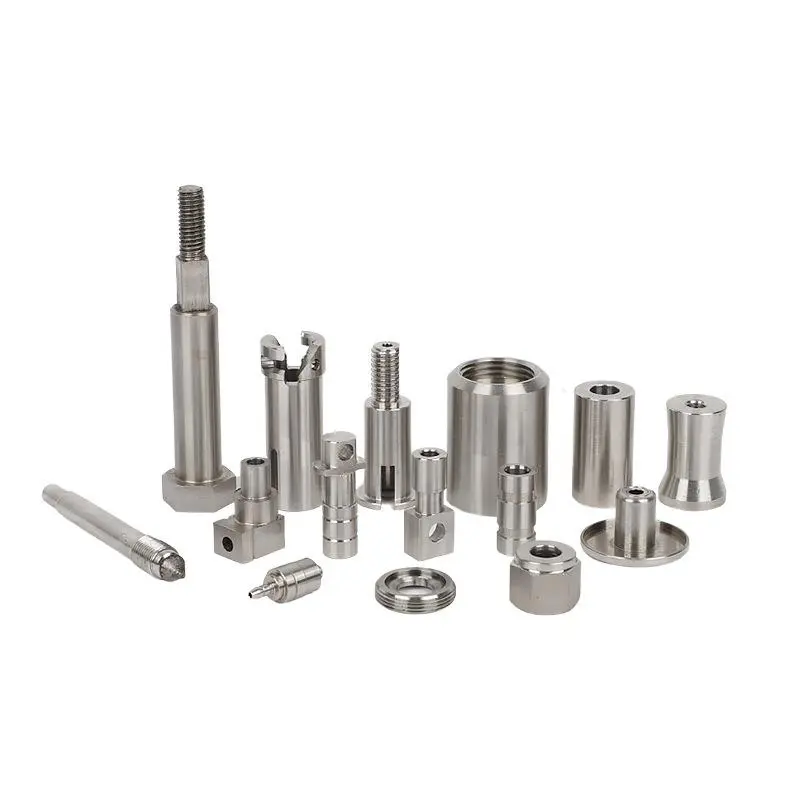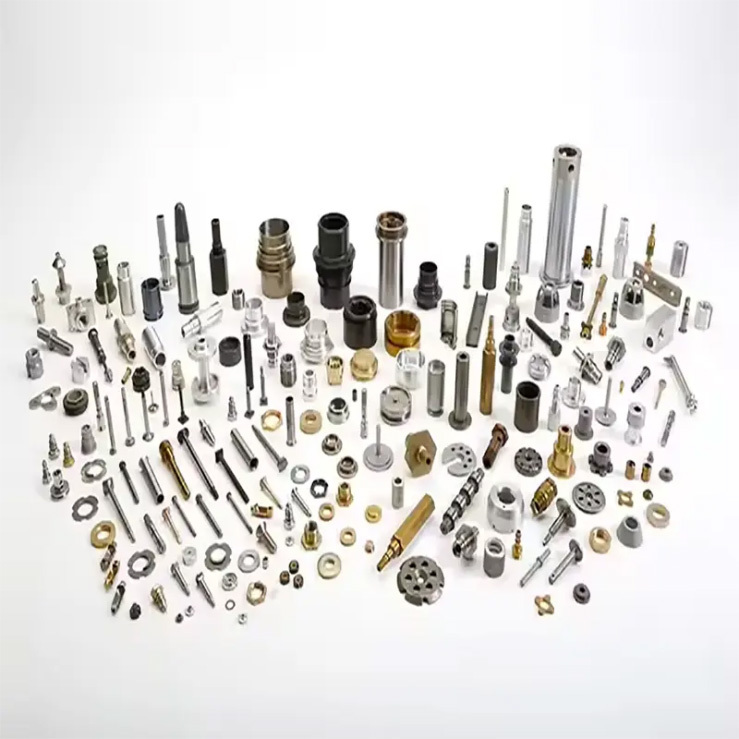Maximizing Efficiency with CNC Swiss Aluminum Machined Components: The Key to Precision Manufacturing
Published Time:
2025-10-16
Maximizing Efficiency with CNC Swiss Aluminum Machined Components
Understanding CNC Swiss Machining: An Overview
CNC (Computer Numerical Control) Swiss machining is a revolutionary manufacturing process that combines advanced computer technology with the precision of traditional Swiss lathe machining. This method is particularly effective in producing small, intricate components with tight tolerances, especially in materials like aluminum. The unique design of Swiss machines allows for continuous feed and rotation of the material, which leads to enhanced efficiency and accuracy.
The Importance of Aluminum in Precision Machining
Aluminum has become a favored material in precision machining. Its lightweight nature, excellent corrosion resistance, and conductivity make it ideal for various applications. When paired with CNC Swiss machining, aluminum components can be produced with unparalleled precision and speed. This combination leads to reduced production times and lower costs, making it a popular choice in industries such as aerospace, automotive, and medical devices.
Key Advantages of CNC Swiss Aluminum Machined Components
1. Enhanced Precision and Tolerance
The precision offered by CNC Swiss aluminum machined components is unmatched. With tolerances as tight as ±0.001 inches, manufacturers can produce parts that meet strict industry standards. This level of accuracy is crucial in applications where even the slightest deviation can lead to failures.
2. Increased Production Efficiency
CNC Swiss machining is designed for high-speed production. The ability to perform multiple operations in a single setup minimizes machine downtime and significantly increases throughput. This efficiency is essential for meeting tight deadlines and maintaining competitive pricing in the manufacturing sector.
3. Versatility in Design
CNC Swiss machines can work with a variety of materials beyond aluminum, including brass, stainless steel, and plastics. This versatility allows manufacturers to take on diverse projects without investing in multiple machining setups. The adaptability of CNC Swiss machining makes it a valuable asset in any production facility.
4. Cost-Effectiveness
While the initial investment in CNC Swiss machining technology can be substantial, the long-term savings are significant. Reduced material waste, lower labor costs, and shorter lead times contribute to overall cost reductions. Additionally, the durability of aluminum components minimizes the need for replacements, further enhancing cost efficiency.
5. Superior Surface Finish
CNC Swiss aluminum machined components offer exceptional surface finishes. The precision of the machining process allows for smooth, polished surfaces that often require little to no additional finishing work. This quality not only enhances the aesthetic appeal of the components but also improves their performance in functional applications.
Applications of CNC Swiss Aluminum Machined Components
CNC Swiss aluminum machined components find applications across various industries, each benefiting from their unique properties and advantages.
Aerospace Industry
In the aerospace sector, components must adhere to strict weight and safety standards. CNC Swiss aluminum machined parts provide a lightweight alternative without compromising strength. Examples include brackets, housings, and support structures that are critical to aircraft performance.
Automotive Industry
Automotive manufacturers rely on high-performance parts that can withstand extreme conditions. CNC Swiss machining delivers precision components such as transmission parts, engine components, and safety features that enhance vehicle performance and safety.
Medical Devices
In the medical field, precision and reliability are paramount. CNC Swiss aluminum machined components are utilized in surgical instruments, implants, and diagnostic equipment, ensuring the highest standards of safety and effectiveness.
Best Practices for Maximizing Efficiency in CNC Swiss Machining
To fully exploit the potential of CNC Swiss aluminum machined components, manufacturers should implement several best practices.
1. Invest in Quality Equipment
Upgrading to state-of-the-art CNC Swiss machines can significantly enhance production capabilities. Cutting-edge technology often includes features such as advanced tooling systems, better software integration, and real-time monitoring, which contribute to increased efficiency and precision.
2. Optimize Tooling and Setup
Proper tooling selection and setup are critical for maximizing the efficiency of CNC Swiss machining. Using the right tools for specific materials and applications can reduce cycle times and improve the quality of the finished product.
3. Implement Advanced Programming Techniques
Utilizing advanced programming techniques, such as simulation software, can help manufacturers identify potential issues before production begins. This proactive approach minimizes costly mistakes and optimizes machining processes.
4. Continuous Training and Development
Ensuring that operators are well-trained in the latest CNC technologies and machining techniques is essential. Ongoing training programs can help staff stay updated on best practices and optimize production processes effectively.
5. Embrace Lean Manufacturing Principles
Integrating lean manufacturing principles can streamline operations and reduce waste. Techniques such as value stream mapping, Just-In-Time (JIT) production, and continuous improvement initiatives can enhance overall efficiency.
Future Trends in CNC Swiss Machining Technology
The landscape of CNC Swiss machining is constantly evolving, driven by technological advancements and market demands.
1. Automation and Robotics
The incorporation of automation and robotics in CNC Swiss machining is on the rise. Automated systems can handle repetitive tasks, allowing operators to focus on complex machining operations and improving overall efficiency.
2. Industry 4.0 Integration
The concept of Industry 4.0 emphasizes the integration of smart technologies in manufacturing. CNC Swiss machines connected to the Internet of Things (IoT) can provide real-time data analytics, predictive maintenance, and enhanced quality control.
3. Sustainable Manufacturing Practices
As environmental concerns continue to rise, manufacturers are increasingly adopting sustainable practices. This includes optimizing material usage, reducing energy consumption, and recycling metal scraps, all of which contribute to a more eco-friendly machining process.
Frequently Asked Questions (FAQs)
1. What is CNC Swiss machining?
CNC Swiss machining is a manufacturing process that utilizes computer numerical control technology to produce precise, intricate components, particularly from materials like aluminum, brass, and stainless steel.
2. Why is aluminum commonly used in CNC machining?
Aluminum is favored in CNC machining due to its lightweight properties, excellent corrosion resistance, and conductivity, making it suitable for various applications across multiple industries.
3. How do CNC Swiss aluminum machined components contribute to cost savings?
CNC Swiss machining reduces material waste, lowers labor costs, and shortens lead times, contributing to overall cost reductions in production processes.
4. What industries benefit from CNC Swiss aluminum machined components?
CNC Swiss aluminum machined components are widely used in industries such as aerospace, automotive, and medical devices, where precision and reliability are critical.
5. How can manufacturers maximize efficiency in CNC Swiss machining?
Manufacturers can maximize efficiency by investing in quality equipment, optimizing tooling and setups, implementing advanced programming techniques, providing continuous training, and embracing lean manufacturing principles.
Conclusion
CNC Swiss aluminum machined components represent a significant advancement in the field of precision manufacturing. By leveraging the benefits of CNC Swiss machining, businesses can enhance production efficiency, reduce costs, and produce high-quality components tailored to their specific needs. As we look to the future, the integration of new technologies and sustainable practices will further shape the landscape of CNC machining, ensuring that it remains a vital component of modern manufacturing processes. Embracing these advancements will not only help manufacturers stay competitive but also pave the way for innovations that drive the industry forward.
Previous Page
Previous Page
NewsCenter
Beijing Pafinal Precision Machinery Co., Ltd.
Email:sales@pafinal.com

Address: No. 239 Huanhe South Road, Tianjin Pilot Free Trade Zone (Airport Economic Zone), Tianjin
中企跨境-全域组件
制作前进入CSS配置样式
sales@pafinal.com:
Whatsapp:
在线客服添加返回顶部
图片alt标题设置: PAFINAL
表单验证提示文本: Content cannot be empty!
循环体没有内容时: Sorry,no matching items were found.
CSS / JS 文件放置地




 2025-10-16
2025-10-16


